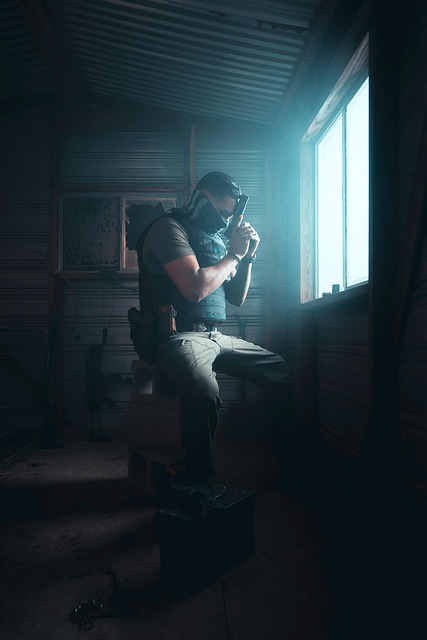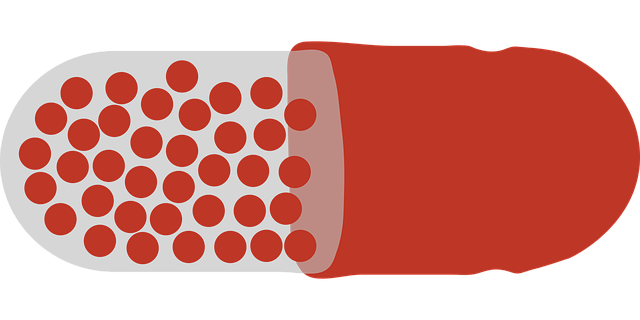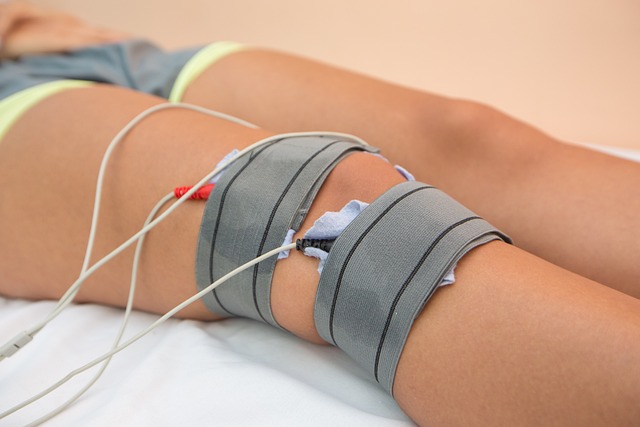Post-Traumatic Stress Disorder (PTSD) is a prevalent mental health issue among military personnel, with recognizable symptoms like flashbacks and nightmares. Various effective therapies, including exposure therapy, cognitive processing therapy, and eye movement desensitization and reprocessing (EMDR), offer treatment options for PTSD. Counseling plays a fundamental role in addressing PTSD by providing safe spaces for veterans to process traumatic events and emotions, using evidence-based techniques such as CBT and EMDR. Stigma around seeking help is a significant barrier; overcoming this requires raising awareness and creating safe, supportive environments. Group therapy sessions complement individual therapy, fostering community and resilience. Long-term management strategies, combining self-care practices with professional support, are crucial for veterans' ongoing recovery and wellness.
“Counseling plays a pivotal role in the journey towards healing for military service members affected by Post-Traumatic Stress Disorder (PTSD). This comprehensive guide delves into the multifaceted approach to PTSD treatment, exploring various counseling therapies and their effectiveness. From understanding the disorder’s impact to navigating barriers like stigma and fear, we provide insights into strategies that support veterans’ long-term wellness. Discover how specialized counseling can foster recovery, enhance group support, and ultimately empower individuals in their path to resilience.”
Understanding Post-Traumatic Stress Disorder (PTSD) in the Military

Post-Traumatic Stress Disorder (PTSD) is a mental health condition that can affect individuals who have experienced or witnessed a traumatic event, such as combat, accidents, natural disasters, or acts of violence. In the military, where personnel often face high-risk situations, PTSD is a significant concern. Understanding this disorder is crucial in providing effective counseling and support for those affected.
PTSD symptoms can include flashbacks, nightmares, severe anxiety, depression, and intense emotional reactions to reminders of the traumatic event. It’s important to recognize that PTSD treatment involves various therapeutic approaches, such as exposure therapy, cognitive processing therapy, and eye movement desensitization and reprocessing (EMDR), which have shown promising results in helping veterans manage their symptoms and improve their quality of life.
The Role of Counseling in PTSD Treatment

Counseling plays a pivotal role in the comprehensive approach to PTSD treatment. It offers veterans and active-duty service members a safe space to process their traumatic experiences, emotions, and memories, which are often at the core of PTSD symptoms. Through various therapeutic techniques, counseling helps individuals develop coping strategies, enhance resilience, and regain control over their lives.
Effective counseling for PTSD treatment focuses on evidence-based approaches such as cognitive processing therapy (CPT) and eye movement desensitization and reprocessing (EMDR). These methods facilitate the brain’s natural healing process by helping individuals reframe traumatic memories, reduce their impact, and manage associated distressing emotions. Counseling also promotes social connection and support, which is crucial for recovery, as sharing experiences with peers who understand can foster a sense of belonging and validate one’s feelings.
Different Types of Counseling Therapies for Military PTSD

Military personnel who experience Post-Traumatic Stress Disorder (PTSD) have a range of counseling therapies available to them for effective PTSD treatment. Cognitive Behavioral Therapy (CBT) is one of the most common and well-researched approaches, focusing on identifying and changing negative thought patterns and behaviors associated with traumatic events. Another popular method is Eye Movement Desensitization and Reprocessing (EMDR), which helps individuals process traumatic memories and reduce their distressing impact.
Additionally, Prolonged Exposure (PE) therapy encourages patients to confront and engage with traumatic memories in a safe environment, gradually reducing avoidance behaviors. Dialectical Behavior Therapy (DBT) is particularly useful for service members struggling with emotional regulation, distress tolerance, and interpersonal effectiveness skills, addressing the complex emotional challenges often associated with PTSD. These evidence-based therapies offer tailored support, helping veterans navigate their unique experiences and find sustainable coping mechanisms.
Navigating Barriers to Seeking Help: Overcoming Stigma and Fear

Many veterans struggle with seeking counseling for PTSD due to barriers rooted in stigma and fear. Historically, mental health issues have been stigmatized within military communities, leading some service members to believe that asking for help is a sign of weakness. This misconception perpetuates a culture where silence and isolation are normalized, hindering open conversations about mental well-being. Overcoming this stigma requires raising awareness, fostering understanding, and emphasizing the importance of PTSD treatment as a strength-building and necessary aspect of self-care.
Fear also plays a significant role in preventing veterans from accessing counseling services. The fear of judgment, recollection of traumatic memories, or even concern about what others might think can paralyze individuals. It’s crucial for support systems—both within the military and civilian communities—to create safe spaces where veterans feel empowered to share their experiences without fear of repercussions. This includes encouraging open dialogues, promoting access to professional counseling services, and fostering an environment that prioritizes mental health as a core component of overall well-being.
The Impact of Group Therapy and Peer Support for Veterans

Group therapy offers veterans a unique and powerful tool in their journey towards healing from PTSD. By coming together with peers who have shared similar experiences, individuals can find solace, understanding, and a sense of community. This collective setting facilitates open dialogue, allowing veterans to express their struggles and share coping strategies. Through group sessions, members build resilience, gain new perspectives, and learn that they are not alone in their battle against PTSD. Peer support within these groups is invaluable, as it fosters a culture of compassion and solidarity.
In conjunction with individual therapy, group therapy serves as a comprehensive PTSD treatment approach. It empowers veterans to confront their trauma in a safe environment, encourages self-reflection, and promotes personal growth. Moreover, peer support networks can extend beyond the therapeutic setting, providing continuous encouragement and accountability as veterans reintegrate into civilian life. This holistic support system plays a pivotal role in long-term recovery, enabling individuals to rebuild their lives and regain a sense of control after facing the challenges of military service.
Long-term Management and Recovery: Strategies for Lasting Wellness

PTSD recovery is an ongoing process, and long-term management plays a crucial role in achieving lasting wellness for veterans. Effective strategies for managing PTSD involve a combination of self-care practices and professional support. One key aspect is establishing a consistent routine, which can help reduce anxiety and promote stability. Regular exercise, mindfulness meditation, and sufficient sleep are evidence-based practices shown to improve symptoms of PTSD. These activities not only enhance physical health but also provide healthy outlets for managing stress and emotions.
Additionally, seeking professional support through PTSD treatment, such as cognitive behavioral therapy (CBT) or eye movement desensitization and reprocessing (EMDR), can offer powerful tools for processing traumatic memories and developing adaptive coping mechanisms. Group therapy sessions can also foster a sense of community and understanding, allowing individuals to share experiences and gain insights from peers facing similar challenges. Integrating these strategies into daily life empowers veterans to actively participate in their recovery journey and cultivate resilience.
